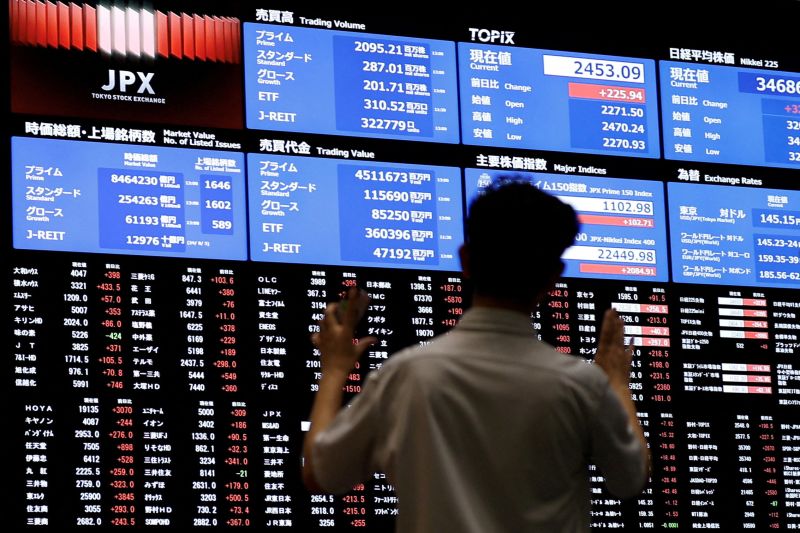Asian markets opened the week on a weak note as confusion over US trade policies and a surprise increase in oil supply weighed on investor sentiment. Stocks in Japan, South Korea, and China edged lower, while US futures dipped, reflecting caution over potential tariff escalations. The lack of clarity from Washington added to the uncertainty, with President Trump signaling higher tariffs by August 1 but leaving key details unresolved.
Over the weekend, Trump stated that the US would notify trading partners of increased tariffs by July 9, with rates potentially reverting to April’s levels—or even higher—if negotiations stall. Earlier this year, the administration had proposed a 10% base tariff on most nations, with some facing “reciprocal” rates as high as 50%. However, Trump also suggested some tariffs could jump to 60-70%, particularly for countries aligning with BRICS trade policies.
Analysts had anticipated delays in implementing the tariffs, given the slow progress in trade talks. ANZ Research warned that if reciprocal tariffs take effect, they could “intensify downside risks to US growth and increase upside risks to inflation.” Meanwhile, oil prices declined after OPEC+ opened supply more than expected, adding another layer of pressure to global markets.
Market reactions were muted but cautious. Japan’s Nikkei fell 0.5%, while China’s blue-chip stocks dropped 0.5%. US S&P 500 and Nasdaq futures slipped 0.3%, and European futures also saw minor declines. With trade tensions lingering and oil supply dynamics shifting, investors remain on edge, awaiting clearer signals from policymakers.


